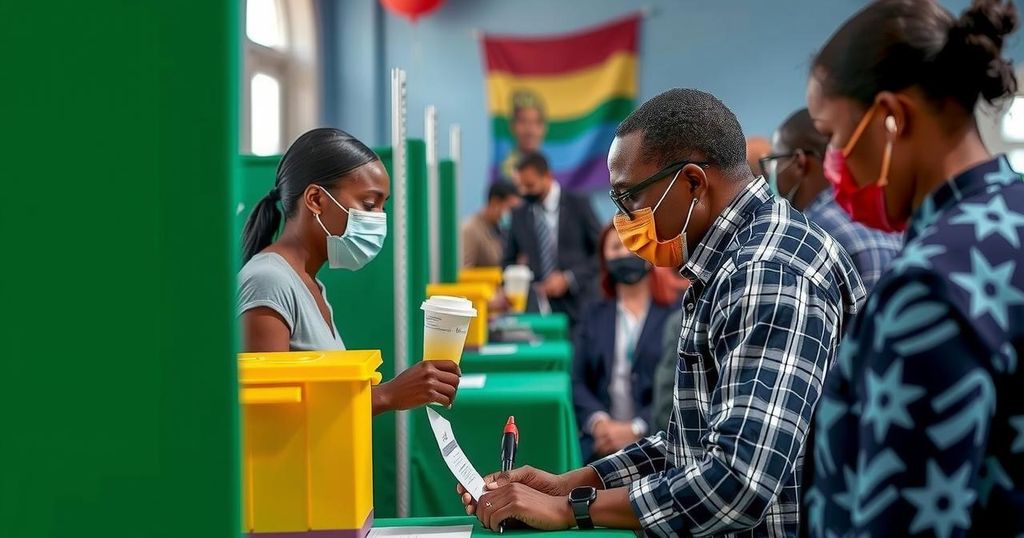Namibia Extends Voting Period Amid Electoral Controversies and Complaints
Namibia extended its voting period for the presidential and parliamentary elections to Saturday due to ballot paper shortages, prompting complaints from the opposition alleging electoral fraud. Many polling stations experienced logistical issues, resulting in long queues and frustrated voters. The situation is a reflection of growing discontent in a nation with significant economic disparities, as the ruling party’s candidate may become Namibia’s first female president if successful in the elections.
Namibia recently extended its voting period for the presidential and parliamentary elections from Wednesday to Saturday due to shortages of ballot papers, a decision met with complaints from the opposition. The Independent Patriots for Change party condemned the extension as illegal, alleging that it raises questions of electoral fraud. Electoral officials noted that logistical challenges had left many voters unable to participate, resulting in long queues at polling stations. Despite assurances of forthcoming ballot papers, skepticism lingers among frustrated voters, reflecting the growing discontent within the nation. As elections approach amidst political tension, Netumbo Nandi-Ndaitwah, the ruling party’s candidate, could potentially become the country’s first female president if successful, despite facing a populace increasingly disillusioned by economic hardship and limited opportunities.
The context of this article revolves around the electoral process in Namibia, where the extension of the voting period has raised significant controversies. With an electoral history recognized for its credibility, Namibia’s current situation highlights logistical failures that threaten the integrity of the democratic process. The ruling party, SWAPO, has been in power since independence from South African control in 1990, establishing a long-standing political dominance amid rising discontent among the youth over economic disparities and employment challenges. The electoral landscape is further complicated by comparisons to neighboring Mozambique, where claims of electoral fraud have led to social unrest.
In conclusion, the challenges surrounding Namibia’s electoral process underscore the importance of transparency and accessibility in democratic systems. The extension of the voting period, while aimed at facilitating participation, has been marred by allegations of misconduct and logistical failures, reflecting broader societal frustrations. With a significant portion of the electorate disengaged due to these issues, the upcoming elections will serve as a pivotal moment for the country, as voters seek accountability and change in leadership amid persistent economic challenges.
Original Source: apnews.com




Post Comment